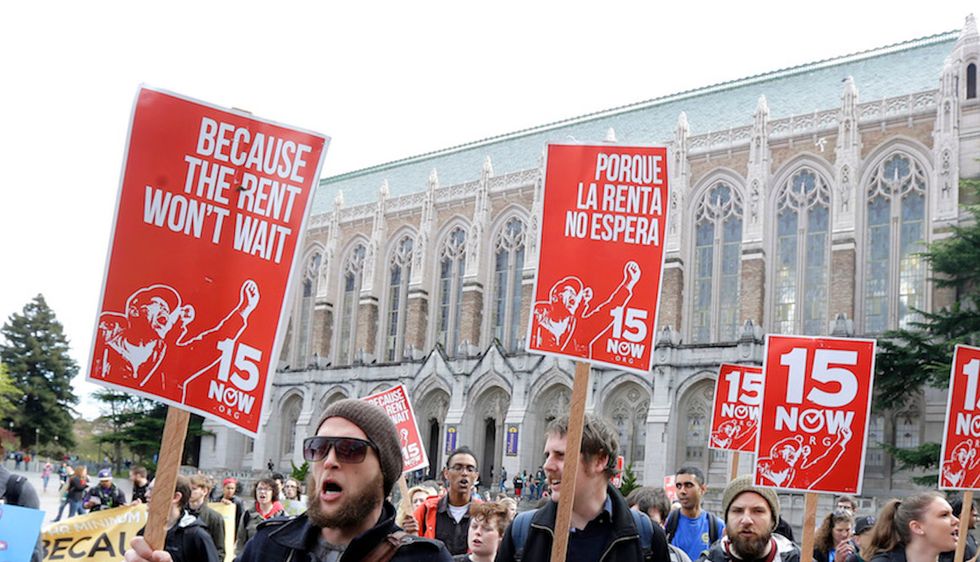
Students and other supporters protest, Wednesday, April 1, 2015, on the University of Washington campus in Seattle, in support of raising the minimum wage for campus workers to $15 an hour. Seattle's new $15 minimum wage law began going into effect Wednesday with a program to gradually raise wages through 2017 and beyond, but UW officials have questioned whether their status as a state entity would require them to raise wages for students and other campus workers on the same schedule. (AP Photo/Ted S. Warren)


